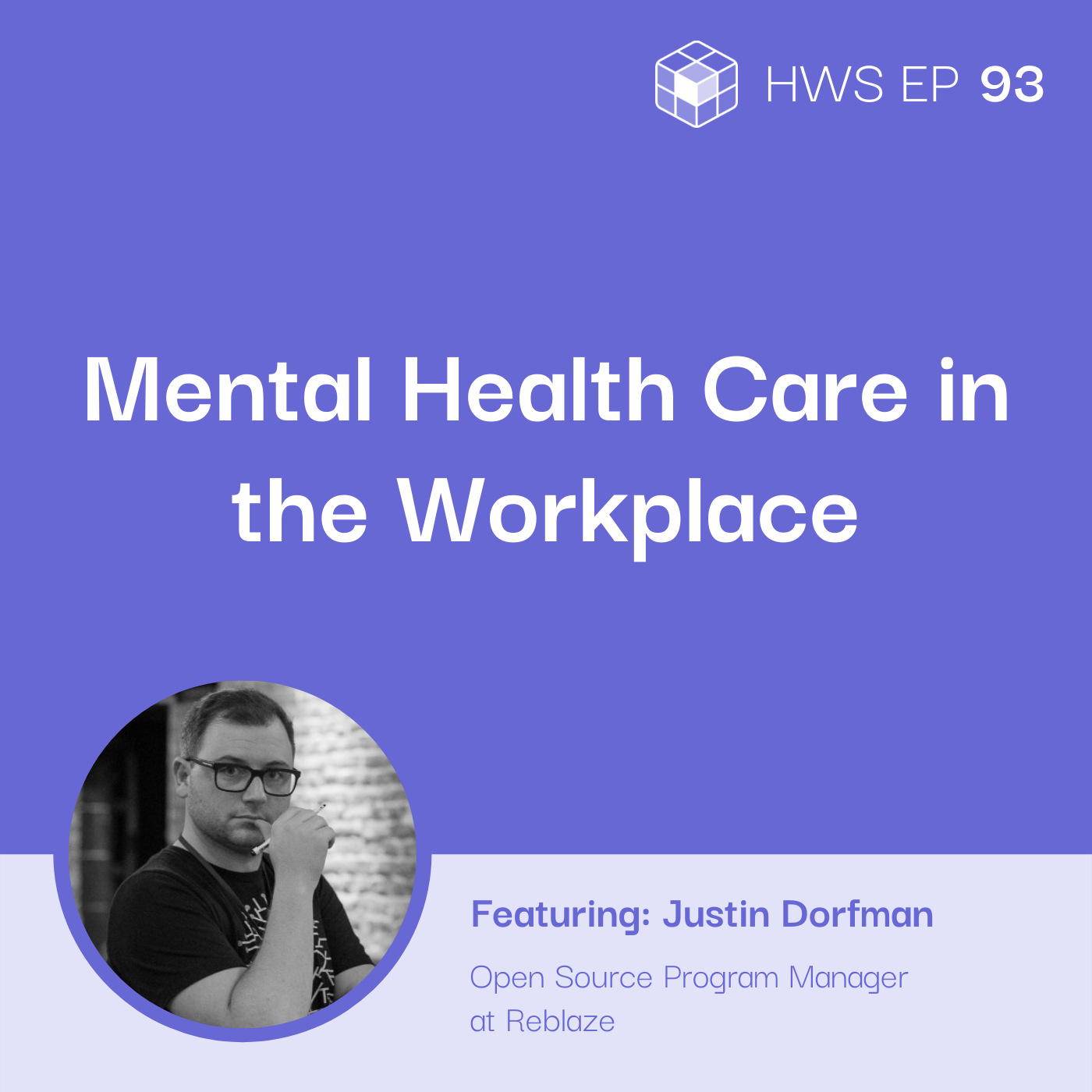Listen on:
Table of Contents:
Problem: How can small companies help employees take better care of their mental health in the workplace.
According to an article in World Bank Blogs, nearly 1 billion people live with a mental disorder. And, unfortunately, in low-income countries, more than 75% of people with the disorder do not receive the treatment they need. With the pandemic magnifying discussions on mental health, many companies are communicating improvements on their mental health and wellness programs. But, are these companies walking the talk? How can companies help employees take better care of their mental health in the workplace?
For me, it’s just each year it’s been easier and easier to discuss what is going on, or what I’ve been through. There are probably others that are going through the same thing. And, they’re scared they don’t want their bosses to know they have a mental health issue, and they want to avoid being stigmatized, passed for promotion, you know, all these other things.
Face the Truth Early On and Avoid the Disconnect
Distressed employees describe situations in which they are unable to cope for a variety of reasons. The trigger could come from something at home, work pressure, or a mental disorder like depression, bipolar, or anxiety. When this happens, they need a compassionate, human response. Identifying when something isn’t right earlier helps organizations provide support to employees. However, recognizing the problem alone will not solve it. Justin Dorfman, an Open-Source Program Manager, draws from his experiences of having bipolar disorder. He highlights the need for companies to decide how much they are willing to invest in ensuring the wellbeing of their workers with mental health issues.
Everything that someone going through an episode, it’s temporary and certain people recover faster than others. And it’s really up to you and your business partners to decide, ‘Hey, is this a liability?’ Is this something that we want to handle? Or do we want to just let them go? And it sucks. It is what it is. And I really just think it depends on the person.
Tips For Employers: How to Help Employees Suffering From Mental Health Issues
Step #1: Look at Signals
People suffering from mental health issues are also similar to a person with a broken leg, except that you can’t see the cast. It’s an invisible form of sickness. An easy response will be to telling them to snap out of it. But will that be a response you’d say to a person visibly sick? The best way to address this is empathy. Try putting your feet in the shoes of someone who’s broken two legs and asked to run a mile? People experiencing mental health disorders are going through something the same. Some signals include:
- Changes in work habits like having poor performance, lack of motivation, or difficulty in concentrating.
- Overperformance can also be a sign of an upcoming high that could possibly be followed by a severe low performance.
- Dramatic changes in demeanor like excessive nervousness, restlessness, irritability, or acting tense. Outbursts and mood swings are signals too.
- Avoiding interaction can also be a sign of withdrawal and lack of engagement.
Bipolar people are very creative. And if they’re taking their medication or everything else, you wouldn’t even know… But knowing that if they have bipolar disorder, they are creative, and they do produce. There is a catch with that. Sometimes for the people that might be over-producing, just know that there is a possible downfall and that is severe burnout and possibly missing work
Step #2: Encourage Employee to Take a Mental Health Break
Even if it means mandating and enforcing the break. However, do so in the context of tenure security and protection from discrimination and stigma. Companies must learn to communicate that discussing mental health openly will not lead to job loss or reduced opportunities. Creating that culture and environment will gain appreciation from employees later on.
I still need to do what’s best for me. I can still go on podcasts or have open conversations with people at work about mental health because I don’t want anyone to feel like they have to hold back. They don’t want someone to stay at work and perform poorly because they’re scared they’re going to lose their job or something like that. What does that do? Who does that benefit?
Tips For the Employees: How to Help Yourself
Better mental health is a two-sided project. The employee suffering from mental health problems should buy into the idea that they need intervention and help. The first part is helping them recognize that they do have a problem. Then, it’s important for the employee to acknowledge this and the need to ask for professional help.
You just have to do the work, and the bottom line is you have to want it. If you’re doing it for someone else, then that’s stupid. You got to have to go do it for yourself. I think what you said is, it’s absolutely 100% important to not self-medicate.
Thoughts on the importance of therapy: “Yeah. My therapist is my coach for sure. She finds these patterns, these constant patterns that I do every six months or so. And she’ll address them immediately, like, ‘Hey, you’re doing this again. What’s going on?’ ”
This interview is part of the How We Solve podcast. To hear more from industry experts who are solving everyday business problems, check us out on Spotify, Apple Podcasts, and on our website.
About the guest

Justin Dorfman
Justin Dorfman is Reblaze's Open Source Program Manager. He is also a bipolar who takes his time, sharing his experience on how he dealt with his mental health problems and succeed in his career. Professionally he is responsible for fostering the adoption of their project Curiefense in the cloud-native space. He also led similar initiatives for Gitcoin, Sticker Mule, & MaxCDN. Justin has contributed to Bootstrap, Font Awesome, jQuery, Nginx, GNU Bash, and many more. He also serves on the Selection Committee for Mozilla's Open Source Support (MOSS) program, as well as the Open Source Collective's board of directors. In 2017, he co-founded SustainOSS, which hosts events and podcasts for Open Source Software Sustainers.
How people can people reach the guest:
Official Website: Justin Dorfman’s Personal Website
LinkedIn: Justin Dorfman
Twitter: @jdorfman
Listen on:
